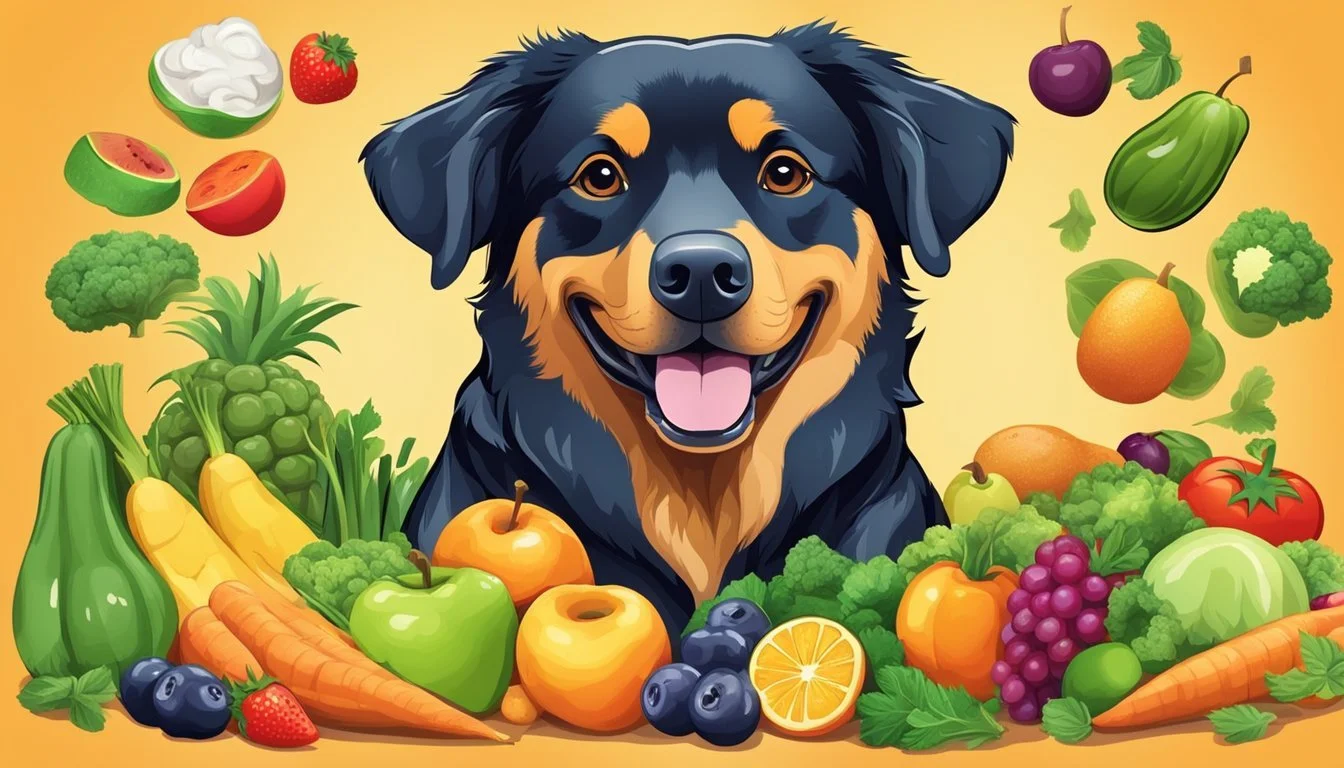Lucky Dog Cuisine
Nutritional Excellence for Canine Health
Lucky Dog Cuisine offers a fresh approach to canine nutrition with its gourmet, all-natural dog food. This company specializes in cooked meals made from human-grade ingredients, providing an alternative to traditional kibble and raw diets.
Lucky Dog Cuisine's meals are complete and balanced, containing wholesome ingredients like grass-fed beef, hormone-free turkey, and fresh vegetables. These recipes cater to dogs' nutritional needs while avoiding preservatives, fillers, and pet-grade ingredients commonly found in commercial dog foods.
The company operates on a subscription model, delivering pre-cooked meals directly to pet owners' doors. This convenient service allows dog owners to provide their pets with fresh, nutritious food without the hassle of daily preparation. Lucky Dog Cuisine's approach aims to educate pet owners about the benefits of whole food diets for companion animals.
Understanding Dog Food
Dog food comes in various forms and qualities, with ingredients playing a crucial role in canine nutrition. Proper label interpretation and awareness of different options help pet owners make informed choices for their furry companions.
Types of Dog Food
Dry kibble, wet canned food, and fresh or frozen options are the main types of dog food available. Kibble offers convenience and dental benefits. Wet food provides higher moisture content and palatability. Fresh or frozen foods, like Lucky Dog Cuisine, offer whole food ingredients in their natural state.
Some brands combine these types, creating kibble with freeze-dried raw pieces. Dehydrated and freeze-dried foods are also gaining popularity, offering lightweight storage and minimal processing.
Commercial Dog Food vs. Whole Food
Commercial dog foods are formulated to meet nutritional standards set by regulatory bodies. They offer convenience and consistent nutrition. Many use highly processed ingredients and preservatives to extend shelf life.
Whole food diets, like those offered by Lucky Dog Cuisine, use minimally processed ingredients. These often include recognizable foods like meats, vegetables, and grains. Whole food diets can provide more natural nutrients and may be easier for some dogs to digest.
The Importance of High-Quality Ingredients
High-quality ingredients form the foundation of nutritious dog food. Protein sources should be named meats rather than generic "meat meals." Look for whole grains, fruits, and vegetables as carbohydrate sources.
Avoid foods with artificial preservatives, colors, or flavors. These additives offer no nutritional value and may cause sensitivities in some dogs. Foods with limited ingredient lists often indicate higher quality and less processing.
Natural preservatives like vitamin E (mixed tocopherols) are preferable to synthetic options.
Label Literacy: Decoding Pet Food Labels
Understanding dog food labels doesn't require a chemistry degree. The ingredient list is ordered by weight, with the heaviest items first. This can be misleading if water-heavy ingredients are used.
The guaranteed analysis shows minimum percentages of protein and fat, and maximum percentages of fiber and moisture. These numbers help compare foods on a dry matter basis.
Look for AAFCO statements indicating whether the food is complete and balanced. Feeding guidelines provide a starting point but may need adjustment based on a dog's activity level and metabolism.
Be wary of marketing terms like "premium" or "gourmet," which have no legal definitions in the pet food industry.
Lucky Dog Cuisine Overview
Lucky Dog Cuisine offers natural, whole food meals for dogs using high-quality ingredients. The company focuses on providing nutritious options made with grass-fed meats and organic grains, free from preservatives.
Brand Philosophy
Lucky Dog Cuisine emphasizes using human-grade ingredients in their dog food recipes. The brand avoids preservatives, fillers, and artificial additives. Their approach stems from a family tradition of cooking fresh food for dogs that spans over 50 years.
Lucky Dog Cuisine aims to promote canine health through wholesome nutrition. They use humanely raised grass-fed beef and pork, as well as hormone-free turkey in their products. The company positions itself as an alternative for pet owners who want to feed natural foods but may find raw diets challenging.
Menu and Recipes
Lucky Dog Cuisine offers a variety of flavors to cater to different canine tastes and dietary needs. Their menu includes:
Beef and Rice
Beef and Barley
Pooch Pasta
Turkey N' Rice
Picky Palate Pork
Turkey N' Taters
These recipes combine meats with grains or vegetables to create balanced meals. The food is cooked and frozen, preserving nutrients without the need for artificial preservatives. Lucky Dog Cuisine uses only whole food ingredients in their recipes.
Guaranteed Analysis of Lucky Dog Cuisine
Lucky Dog Cuisine provides a guaranteed analysis of their products to ensure nutritional quality. Based on available information:
Protein: Approximately 30% (dry matter basis)
Fat: Around 20% (dry matter basis)
Estimated carbohydrates: About 42%
These figures indicate a protein-rich diet with moderate fat content. The exact nutritional profile may vary slightly between different recipes. Lucky Dog Cuisine's products generally feature above-average protein content compared to many commercial dog foods.
Nutritional Benefits
Lucky Dog Cuisine offers a balanced blend of essential nutrients to support canine health. The food's composition focuses on high-quality ingredients that provide optimal nutrition for dogs.
Protein and Fat Sources
Lucky Dog Cuisine uses humanely raised grass-fed beef and pork, as well as hormone-free turkey as primary protein sources. These meats provide essential amino acids for muscle maintenance and growth. The food contains beef heart and liver, which are nutrient-dense organ meats rich in vitamins and minerals.
Fat content comes from extra virgin olive oil, which supplies healthy fats and omega-3 fatty acids. These fats support skin health, coat shine, and cognitive function in dogs. The protein content averages 34%, while fat levels average 19% on a dry matter basis.
Carbohydrates in Dog Food
Carbohydrates in Lucky Dog Cuisine come from wholesome sources like brown rice and vegetables. These provide energy and fiber for digestive health. The food includes carrots, green beans, and apples, which offer natural sugars and additional nutrients.
Pumpkin is also used in some recipes, known for its fiber content and digestive benefits. The estimated carbohydrate content is around 42% on a dry matter basis. This balanced approach provides sustained energy without overloading dogs with excess carbs.
Vitamins and Minerals for Canine Health
Lucky Dog Cuisine incorporates a variety of fruits and vegetables to provide natural vitamins and minerals. Blueberries offer antioxidants, while spinach provides iron and other minerals. The food is fortified with essential vitamins including A, E, D3, and B-complex vitamins.
Calcium carbonate is added to support bone health. The inclusion of organic kelp provides iodine and other trace minerals. Chelated minerals are used, which are more easily absorbed by a dog's digestive system. This comprehensive vitamin and mineral profile supports overall health, immune function, and vitality in dogs.
Specific Ingredients Analysis
Lucky Dog food focuses on high-quality, nutrient-dense ingredients to provide balanced nutrition for dogs. The brand emphasizes whole food sources and avoids artificial additives.
Meat Selection: Grass Fed and Humanely Raised
Lucky Dog uses grass-fed beef as a primary protein source. This provides lean protein and beneficial omega-3 fatty acids. The beef is sourced from humanely raised cattle without added hormones or antibiotics.
Poultry like chicken and turkey are also included, offering additional protein variety. These meats are raised without cages and fed a vegetarian diet.
Fish appears in some recipes, supplying omega-3s and lean protein. Common options are salmon and whitefish.
The focus on varied, high-quality animal proteins helps support muscle maintenance and overall health in dogs.
Veggies and Fruits in the Mix
Lucky Dog incorporates a range of GMO-free vegetables and fruits. Green beans and carrots provide fiber, vitamins, and antioxidants.
Sweet potatoes and regular potatoes offer complex carbohydrates and additional fiber. These help provide sustained energy.
Tomatoes add lycopene, an antioxidant that may support heart health. Blueberries and apples contribute additional antioxidants and vitamins.
This produce blend aims to provide a spectrum of nutrients from whole food sources. The variety helps ensure dogs receive a mix of beneficial plant compounds.
Beneficial Fats: Fish and Oils
Healthy fats are crucial for canine nutrition. Lucky Dog includes fish oil as a source of omega-3 fatty acids EPA and DHA. These support skin, coat, joint, and cognitive health.
Extra virgin olive oil is used as a source of monounsaturated fats and antioxidants. This can contribute to a healthy coat and skin.
The combination of animal and plant-based fats aims to provide a balanced fatty acid profile. This supports various aspects of canine health and wellness.
Health and Life Stages
Lucky Dog food offers nutritional options tailored to different life stages and dietary needs. Their formulas aim to support dogs' health throughout their lives, from puppyhood to senior years.
Tailored Nutrition for Different Life Stages
Lucky Dog provides recipes suitable for all life stages. Puppies require higher protein and fat content for growth and development. Adult dogs need balanced nutrition to maintain health and energy levels.
Senior dogs often benefit from lower calorie diets with added joint support. Lucky Dog incorporates ingredients like brown rice, barley, and eggs to meet these varying nutritional needs.
Their all life stages formulas contain a mix of proteins, carbohydrates, and fats appropriate for dogs of different ages and activity levels.
Managing Special Dietary Needs
Lucky Dog offers options for dogs with specific health concerns or food sensitivities. Some recipes exclude common allergens like wheat or soy.
For dogs with digestive issues, Lucky Dog includes easily digestible ingredients like rice and cottage cheese in certain formulas. Probiotics from sources like yogurt may be added to support gut health.
Dogs with weight management needs can benefit from their lower fat options. Lucky Dog also provides grain-free choices for dogs with grain sensitivities.
The Convenience of Subscriptions
Lucky Dog Cuisine offers a flexible subscription program for fresh dog food delivery. Customers can customize their orders and delivery schedules to suit their needs.
Subscription Program Details
Lucky Dog Cuisine's subscription service provides regular deliveries of fresh, handmade dog food. Customers can choose from seven different recipes, allowing variety in their pet's diet. The standard delivery interval is every 28 days, but this can be adjusted to fit individual preferences.
Free shipping is included with subscriptions, adding to the cost-effectiveness of the service. Subscribers can easily modify or cancel their orders at any time, providing flexibility as their pet's needs change.
Managing Your Orders and Deliveries
Subscribers have full control over their Lucky Dog Cuisine orders. They can log into their account to adjust delivery dates, change food quantities, or switch between recipes. This level of customization ensures that pets always have the right amount of fresh food on hand.
The company sends email reminders before each shipment, allowing customers to make last-minute changes if needed. Delivery tracking is provided, so owners know exactly when to expect their pet's food to arrive.
Advantages of a Regular Delivery Schedule
A consistent delivery schedule ensures that dogs always have access to fresh, nutritious meals. This regularity can help maintain a pet's dietary routine, which is beneficial for their overall health and digestion.
Automatic deliveries eliminate the need for last-minute trips to the pet store. This saves time and ensures that owners never run out of food for their furry companions. The 28-day cycle aligns well with most dogs' feeding needs, providing just the right amount of food between shipments.
Regular deliveries also make it easier for pet owners to budget for their dog's food expenses, as they know exactly when and how much they'll be charged for each shipment.
Preparing and Serving
Lucky Dog Cuisine offers convenient and nutritious meals for dogs. Proper preparation and serving techniques ensure your pet receives optimal benefits from this premium food.
How to Properly Serve Lucky Dog Cuisine
Lucky Dog Cuisine arrives frozen and requires thawing before serving. Place the package in the refrigerator overnight or use the defrost setting on your microwave for quicker results. Once thawed, portion the food according to your dog's size and activity level.
Serve the food at room temperature for best flavor and aroma. Gently warm it if desired, but avoid overheating to preserve nutrients. For added variety, mix different flavors like Beef and Barley or Picky Palate Pork.
Always provide fresh water alongside the meal. Clean your dog's bowl after each use to maintain hygiene.
Transitioning from Other Dog Foods
Introduce Lucky Dog Cuisine gradually to prevent digestive upset. Start by mixing a small amount with your dog's current food. Increase the proportion of Lucky Dog Cuisine over 7-10 days.
Monitor your dog's response during the transition. Some dogs may adapt quickly, while others need more time. Adjust the pace as needed.
If your dog has a sensitive stomach, consider extending the transition period. Consult your veterinarian if you notice any persistent digestive issues.
Storage and Handling
Store unopened packages of Lucky Dog Cuisine in the freezer until ready to use. Once thawed, keep refrigerated and use within 3-5 days for optimal freshness.
Avoid refreezing thawed portions to maintain food quality and safety. Use airtight containers to store leftovers in the refrigerator.
Handle the food with clean utensils and wash your hands after preparing meals. This prevents contamination and ensures your dog's meal remains safe and wholesome.
Customer Insights
Lucky Dog Cuisine has garnered attention from dog owners and pet food experts alike. Customers and reviewers have shared their experiences with this fresh, frozen dog food option.
User Reviews and Testimonials
Many dog owners praise Lucky Dog Cuisine for its use of human-grade ingredients. They report improved coat quality and increased energy levels in their pets. Some customers appreciate the convenience of pre-cooked, frozen meals that can be easily stored and served.
Pet parents with picky eaters often note increased food enthusiasm. Several reviews mention dogs with sensitive stomachs or allergies doing well on Lucky Dog Cuisine. A common theme is the peace of mind owners feel knowing exactly what's in their dog's food.
Some users express concern about the higher cost compared to traditional kibble. Storage space in freezers can also be an issue for those with limited room.
Product Reviews: What the Experts Say
Dog food review sites generally give Lucky Dog Cuisine positive ratings. The Dog Food Advisor praises the brand's use of whole food ingredients and lack of artificial preservatives. Experts appreciate the variety of proteins offered, including chicken, beef, and fish options.
Nutritionists highlight the inclusion of vegetables and fruits for added vitamins and minerals. The absence of common allergens like wheat and soy is seen as a plus for dogs with sensitivities.
Some reviewers note the higher moisture content compared to dry kibble, which can be beneficial for hydration. Critics point out that the fat content may be high for some dogs, emphasizing the importance of portion control.
Comparing to Other High-End Dog Foods
Lucky Dog Cuisine is often compared to other fresh dog food brands like Farmer's Dog and NomNomNow. It stands out for its pre-cooked and frozen format, which some find more convenient than fresh-delivered options.
Price-wise, Lucky Dog Cuisine falls in the mid-to-high range of premium dog foods. It's typically more expensive than kibble but may be more affordable than some fresh-delivered competitors.
Ingredient quality is comparable to other high-end brands, with an emphasis on whole foods. Lucky Dog Cuisine's use of dairy products like cheese and yogurt is unique among many fresh dog food options.
Customization options are more limited compared to some competitors that offer personalized meal plans based on individual dog profiles.
Additional Considerations
Choosing the right dog food involves more than just selecting a brand. Pet owners must consider various factors that can significantly impact their dog's wellbeing.
The Impact of Pet Food on Overall Health
A nutritionally balanced diet is crucial for a dog's overall health. High-quality ingredients contribute to better digestion, stronger immune systems, and healthier skin and coats. Proper nutrition can help prevent obesity, which is linked to various health issues in dogs.
Some premium dog foods contain antioxidants that may help reduce inflammation and support cognitive function in older dogs. Omega-3 fatty acids, often found in fish-based dog foods, can promote joint health and reduce the risk of heart disease.
Regular veterinary check-ups can help monitor how a dog's diet affects their health over time.
Understanding Allergies and Sensitivities
Dogs can develop allergies or sensitivities to certain ingredients in their food. Common allergens include beef, chicken, dairy, wheat, and soy. Symptoms may include itching, gastrointestinal upset, or ear infections.
Limited ingredient diets can help identify and avoid problematic foods. Novel protein sources like duck or venison may be recommended for dogs with multiple allergies.
Food trials, under veterinary supervision, can pinpoint specific allergens. Hypoallergenic or prescription diets may be necessary for dogs with severe sensitivities.
The Role of Hydration in Canine Diets
Proper hydration is essential for a dog's health. Water aids digestion, regulates body temperature, and supports organ function. Dogs should have constant access to fresh, clean water.
Filtered water can be beneficial, as it removes contaminants that may affect taste or health. Some dogs may prefer running water from pet fountains, encouraging increased water intake.
Wet dog food can contribute to hydration, containing up to 75% moisture. This can be especially helpful for dogs prone to urinary tract issues or those who don't drink enough water on their own.
During hot weather or increased activity, dogs may need more water. Adding water to dry kibble can also boost hydration and enhance palatability.








